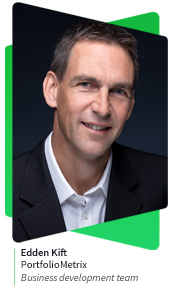|
 Edden Kift Edden Kift
PortfolioMetrix business development team
5 ways advisers have remained client focused during COVID-19
The global pandemic has necessitated a rethink by many advisers about how they should go about their business. While some have continued to function relatively easily and effectively, for others it has been more of a challenge.
In speaking to advisers about the ‘new normal’ environment, I am often quizzed about what other advisers are doing. Five aspects have stood out for me.
Communication
A survey conducted by Financial Advisor Magazine revealed that a lack of timely communication is one of the primary reasons clients leave their advisers. Effective communication doesn’t mean bombarding clients’ inboxes with daily market indicators, weekly economic commentary or a monthly investment statement. While it is important to address investment and financial matters, communicating with clients as unique individuals, with their own goals and aspirations, is key to maintaining and building strong adviser/client relationships.
Request feedback
During challenging times or when life is less busy, many of us tend to reflect on our personal circumstances. While top advisers make a point of obtaining feedback from clients at regular intervals, if ever there was a time to ask clients about what they need most from their adviser, it is now. I firmly believe that asking well considered questions is possibly of greater importance than the solutions that may be offered. Requesting feedback can be done personally, but also by way of a carefully constructed survey. Understanding what is working and what isn’t, may provide valuable guidance about what clients require most.
Client Education
Being seen as a credible source of information by clients is a characteristic exhibited by many top advisers. While it certainly does not require an adviser to be an expert beyond his or her primary field of competency, there is significant benefit in an adviser being seen as the primary source of reliable information. The constant flood of information at our fingertips often leaves us confused about what to believe. Educating clients about what’s happening in the financial world and what it means for their own financial journeys not only builds their confidence, but also the trust they have in their adviser.
Ethics
Irrespective of industry regulation, top advisers hold themselves to the highest personal and professional ethical standards. This means always acting in the best interests of clients.
During times of extreme market volatility, clients are likely to exhibit increased levels of stress and anxiety. It is natural for advisers to also experience heightened levels of unease, especially in relation to the likely drop in clients’ investment values. It may seem obvious but being completely honest with clients during such times is critical. Being truthful about a given situation supports an environment in which appropriate decisions can be made.
Be a coach
In its most basic form, a coach’s primary focus is to ensure improved performance and/or a successful outcome.
Top advisers promote a way of thinking by their clients that leads to behavioural adjustments that would otherwise derail carefully constructed plans and possibly destroy wealth. DALBAR’s annual Quantitative Analysis of Investor Behaviour study leaves little doubt that investor behaviour has a significantly negative impact on investment outcomes. Advisers who are able to address this potentially destructive conduct are likely to have happier clients.
This analysis was written by Edden Kift from the PortfolioMetrix business development team ( www.portfoliometrix.com ).
|